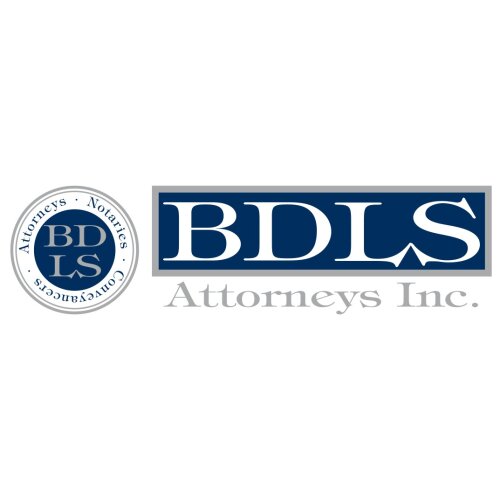Best Hiring & Firing Lawyers in Port Elizabeth
Share your needs with us, get contacted by law firms.
Free. Takes 2 min.
List of the best lawyers in Port Elizabeth, South Africa
About Hiring & Firing Law in Port Elizabeth, South Africa:
Hiring and firing laws in Port Elizabeth, South Africa are complex yet well-structured. They form an integral part of the country's employment law aimed at governing the relationship between the employer and the employee. They include anti-discrimination laws, wrongful termination provisions, and fair hiring practices, amongst others. The main legal regulation is the Labour Relations Act, but other legislation includes the Basic Conditions of Employment Act and the Employment Equity Act.
Why You May Need a Lawyer:
Employers who are planning to hire new staff or terminate current contracts may need legal assistance to ensure compliance with South African employment law. Workers may also need legal help when they believe that their rights have been violated, such as in cases of wrongful dismissal, discrimination, or harassment. Lawyers experienced in labor law can provide advice, clarify rights, present case options, and guide clients through dispute resolution processes.
Local Laws Overview:
The key aspects of employment law in Port Elizabeth, South Africa revolve around fair hiring and dismissal practices. Employers cannot discriminate against any grounds covered by the Employment Equity Act, including race, gender, age, or disability, among others, during hiring. In terms of firing, South African law states that dismissal must be for fair reason such as misconduct or redundancy and follow fair procedures. Wrongful termination claims can be brought by employees who believe they were unfairly dismissed.
Frequently Asked Questions:
Can I be fired without a reason in Port Elizabeth?
No, South African law mandates that employers must have a fair reason for dismissal and follow proper procedures.
What does the Employment Equity Act cover?
The Employment Equity Act protects against discrimination in the workplace on the bases of age, race, gender, sexuality, religion, and other specified grounds.
Do employers need to give notice before termination?
Except in cases of serious misconduct, employers are usually required to give notice before termination. The notice period depends on the duration of employment.
What should I do if I have been unfairly dismissed?
Individuals who feel that they have been unfairly dismissed should seek legal advice. They can potentially lodge a claim with the Commission for Conciliation, Mediation, and Arbitration or the Labour Court.
Does South African law mandate a minimum wage?
Yes, South Africa has established a national minimum wage that employers are required to pay employees.
Additional Resources:
The Department of Labour provides extensive information and resources related to employment laws, including laws pertaining to hiring and firing. The Commission for Conciliation, Mediation, and Arbitration (CCMA) also provides resources and assistance for disputes within the workplace.
Next Steps:
If you require legal assistance related to hiring or firing in Port Elizabeth, South Africa, it is recommended to seek advice from a lawyer with experience in employment law. Identifying potential legal issues and understanding your rights and obligations can help to prevent disputes and ensure fair dealing for all parties.
Lawzana helps you find the best lawyers and law firms in Port Elizabeth through a curated and pre-screened list of qualified legal professionals. Our platform offers rankings and detailed profiles of attorneys and law firms, allowing you to compare based on practice areas, including Hiring & Firing, experience, and client feedback.
Each profile includes a description of the firm's areas of practice, client reviews, team members and partners, year of establishment, spoken languages, office locations, contact information, social media presence, and any published articles or resources. Most firms on our platform speak English and are experienced in both local and international legal matters.
Get a quote from top-rated law firms in Port Elizabeth, South Africa — quickly, securely, and without unnecessary hassle.
Disclaimer:
The information provided on this page is for general informational purposes only and does not constitute legal advice. While we strive to ensure the accuracy and relevance of the content, legal information may change over time, and interpretations of the law can vary. You should always consult with a qualified legal professional for advice specific to your situation.
We disclaim all liability for actions taken or not taken based on the content of this page. If you believe any information is incorrect or outdated, please contact us, and we will review and update it where appropriate.










